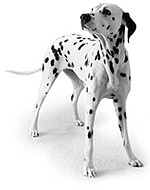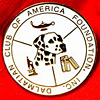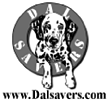



As many owners and breeders will attest, Dalmatians are wonderfully unique dogs with personalities and appearances unlike those of any other breed. Dalmatians are also unique from all other dog breeds in the way they metabolize "purine-yielding foods," which can unfortunately lead to the formation of urinary and/or kidney stones, especially in male Dalmatians.
Stones and crystals can form anywhere in the urinary tract of the dog, from the kidney to the urethra to the most common location, the bladder. The stones can cause mild irritation in minor cases, or can partially or even completely block the flow of urine in major cases, making urination painful or in some cases life-threateningly impossible.
The end result is the need for a specialized diet for Dalmatians that is low in purines – but not necessarily low in protein. A low-purine, high-quality diet can be beneficial both in the prevention and treatment of urinary tract health issues.
While Dalmatians uniquely metabolize purine-yielding foods, they certainly do not hold exclusive domain over urinary tract infections and stone-related problems. Other dog breeds predisposed to urolithiasis (the clinical term for urinary stone health issues) and similar urinary issues include the Beagle, Bulldog, Basset Hound, Cocker Spaniel, Bichon Frise, Miniature Schnauzer, Lhasa Apso, Miniature Poodle, Miniature Schnauzer, Yorkshire Terrier, Dachshund, Newfoundland, Irish and Scottish Terrier, and Irish Setter.
This article primarily focuses on the Dalmatian, but the dietary advice (aside from the issue of purines, which is specific to Dals) and dog health care tips equally apply to other dogs with a hereditary predisposition to urinary tract problems.
While preventing urinary stones is an important health issue for owners of Dalmatians and other dog breeds to understand and monitor, keeping your dog healthy and happy requires little in the way of special care. In fact, as long as you follow the Three Golden Rules of Dalmatian Dog Care, your dog's chances of living a long and healthy life free of pain and disease are extremely high. Let's take a closer look at each of the "Dalmatian Rules":
A high-quality, all natural diet free of artificial additives and chemical preservatives is vital for dogs of all shapes, sizes, and breeds, but it's even more critical for the vitality and overall wellness of your Dalmatian. Thanks to their unique uric acid metabolism and the resulting genetic propensity for urinary stone formation, Dalmatians need a diet rich in high-quality, human-grade protein sources but low in purine content.
An ideal diet for Dalmatians is one that's low in purines (components of certain foods – primarily found in animal proteins – that metabolize into uric acid in the body), moderate in high-quality proteins (and devoid of substandard protein sources), high in complex carbohydrates (whole grains, fruits, and low-purine vegetables help rid the body of extra uric acid), low in fat (fat holds onto uric acid in the kidneys), low in unnecessary fillers (foods that add little in the way of nutrients and for the most part simply result in larger stools for your dog), and low in salt.
This ideal dietary balance helps to foster alkaline urine and keeps uric acid in check. If this diet sounds familiar, it's likely because low-purine diets for Dalmatian dogs are similar in nature to those recommended for humans suffering from gout or kidney stones.
Additionally, since some Dals are allergic to various flours and grains, such as soy, corn, and wheat, these potential food allergens need to be kept in mind when forming your particular Dalmatian's dietary plan. Nutritional supplements such as potassium citrates (for preventing calcium oxalate crystals) and sodium bicarbonate (for preventing cystine crystals) may also be encouraged for dogs with histories of or genetically predisposed to kidney and/or urinary stone problems.
And finally, don't forget to give the treats you feed your Dalmatian the same attention and scrutiny as his or her diet. Many treats contain an unhealthy combination of high purines in the form of substandard meat byproducts or yeast content, as well as chemical preservatives, added salt, and unecessary fillers. Avoid table scraps as much as possible as well, since the high-purine content and excessive salt levels in scraps can adversely affect the pH balance in your Dal's urine, leading to stone formation.
A common mistake made by many Dalmatian owners and breeders has been to link purines and protein together, resulting in the frequently heard but completely inaccurate need for Dalmatians to adhere to a low protein diet. Rather, the key is minimizing high-purine protein sources such as organ meats (kidneys, livers, etc.) and game meats while still ensuring a balanced mix of proteins, carbohydrates, and fat.
Dogs can make all the purines they need from other dietary components, so in order to reduce the possibility of stones being formed, it is both critical and safe to minimize the level of purines in the Dalmatian's diet. What isn't healthy, though, is reducing the level of protein in the Dalmatian's diet to the extremely low levels adopted by many Dalmatian owners and often encouraged by outdated and misguided pet nutrition concepts.
Some Dalmatian diets have suggested as little as 5% meat and 10% vegetables be used, an unfortunate recommendation that all too often can lead to a variety of health issues, including poor coat condition, skin allergies (flaky, itchy skin), lack of energy, fluctuating weight, and continual hunger, as well as numerous nutritional deficiencies such as major deficiencies in Taurine (a vital amino acid derived from high-quality protein sources), essential fatty acids, essential minerals like magnesium and selenium, and valuable vitamins such as vitamin E and B vitamins.
Even some of the prescription-based dog food diets recommended for stone-forming Dalmatians and other dog breeds are closer to this extreme than a healthier, more balanced diet. For example, Hill's Prescription Diet u/d formula averages only 8% protein (without a major protein source appearing in the first six ingredients of the food!) and Royal Canin URINARY SO averages only 12% protein (with low-quality meat by-products and chicken by-products as the primary protein sources in the food).
Poor quality and/or high-purine protein sources are frequently found in dog foods that use animal byproducts as a major protein source in their formulas. These byproducts are ground, rendered, and cleaned slaughtered meat carcass parts such as necks, feet, undeveloped eggs, bones, heads, and intestines, and in many cases are derived from "4-D" meat sources — defined as food animals that have been rejected for human consumption because they were presented to the meat packing plant as "Dead, Dying, Diseased, or Disabled."
While you never know exactly what you're getting with animal byproducts, you can certainly expect the quality of the protein to suffer. There's a reason, after all, that animal byproducts are so cheap. Unfortunately, meat and poultry by-products are commonplace in many diets, including many premium and prescription-based diets. As an example, the two primary protein sources in Royal Canin URINARY SO are meat byproducts and chicken byproducts.
Specific diets often recommended by veterinarians for Dalmatians and other stone-forming dog breeds include Hill's Prescription Diet u/d or k/d or Waltham's Royal Canin URINARY SO diet. Specialized diets formulated for the management of renal insufficiency may also be prescribed. These include IVD Select Care Modified for Chronic Renal Failure (CRF), Purina Canine NF (Kidney Function), and Eukanuba Veterinary Diets' Early Stage Kidney Formula.
If your vet recommends or prescribes one of these formulas, there are several important issues you should consider before making the switch. First and foremost, give both the ingredients label and the guaranteed analysis listing close inspections, as many of these formulas utilize substandard proteins (meat byproducts, chicken byproducts, animal digest, etc.) or fail to include protein sources of any kind in their first six ingredients. Most of the prescription-based diets also include chemical preservatives, high-purine yeast, added salt, corn and corn products as major ingredients (unnecessary fillers in dog food), and/or potential allergens in the form of soy fiber and corn products.
Then there are the issues of price and palatability. Some of the formulas can cost upwards of $2 a day to feed a 50 lb. dog, compared to $1 or less for most premium healthy pet food brands. Plus, many dogs do not take well to the diets – not at all surprising given the lack of protein sources in many cases – and need to have gravies (which can be high in purines) or treats added to the foods before they'll eat them.
In contrast, some of the newer scientifically developed premium health dog foods do meet the ideal diet criteria for Dalmatians while also delivering a highly nutritious, balanced wellness diet that can be helpful in the possible prevention and/or treatment of urinary stones and problems. Flint River Ranch in particular has developed several premium wellness dog food formulas that offer the highest quality human-grade protein and grain sources without using major ingredients high in purines.
These formulas include the Flint River Ranch Lamb and Rice premium formula, the Flint River Ranch "Fish and Chips" Trout and Sweet Potato and Flint River Ranch Duck and Potato premium dog food formulas with added fruits, vegetables, and essential fatty acids, and the Flint River Ranch DryWater premium moist dog food formula.
Purines provide part of the chemical structure of our genes and the genes of plants and animals. A relatively small number of foods, however, contain concentrated amounts of purines that can lead to urinary stone formation in Dalmatians. Since pet food manufacturers are not required to list the level of purines in their pet foods, it's up to the consumer to research the purine content in a given pet food.
Here's a sample list of foods low, moderate, and high in purine content.
"Green Light" Purines. The following foods are considered virtually purine-free and get the "green light" in terms of being used in diets and as treats for dogs predisposed to forming stones:
"Yellow Light" Purines. The following foods are considered to contain a moderate level of purines and are acceptable in diets for stone-forming dog breeds. Most or even all of your Dalmatian's protein sources should come from this list as opposed to the "Red Light" purines listed in the next section.
"Red Light" Purines. The following foods contain the highest levels of purines and should be avoided as much as possible to help prevent stone formation:
Urinary stones form more easily in concentrated, acidic urine, so while a healthy dogfood diet that helps promote an alkaline urine is step one, Rule #2 is helping to keep your dog's urine neutral and as dilute as possible by ensuring your Dalmatian has access to and drinks plenty of fresh water each day. This means keeping fresh water in a variety of locations throughout your house and backyard, and ensuring your dog has easy access to each of the water bowls.
If your Dalmatian needs a little extra incentive to drink, a helpful tip is to add 3/4 to 1 cup or so of extra water to your Dal's dry food meals. Adding the water right before setting the food out (as opposed to letting the food sit in the water for an extended period of time) will help keep your Dalmatian well hydrated while ensuring she still receives the teeth-cleaning and gum-exercising benefits provided by the kibble.
You can also increase your Dalmatian's water consumption by feeding a canned dog food diet with a high water content, although you'll lose some of the teeth-cleaning benefits provided by a dry kibble dog food and will generally end up spending needlessly on the predominately water-based content in the can. As a healthy and economical alternative to canned dog food, the Flint River Ranch DryWater moist dog food formula makes an excellent diet for Dalmatians and other dogs.
In addition to paying careful attention to your dog's diet and helping to reduce the formation of urinary stones by continually providing fresh drinking water, it's also important to ensure your Dalmatian has regular and frequent opportunities to urinate, which prevents the urine from accumulating in the bladder and allows less time for stones to form. This means making sure your Dalmatian has the opportunity to urinate first thing in the morning or before you head off for work, at least every four hours during the day (if at all possible), and right before going to sleep for the night.
The best way to ensure your Dalmatian urinates enough during the day is through regular and frequent exercise, whether that be in the form of leashed walks, jogs along nature trails, playtime at the local dog park, or simply hanging out in the backyard. Just keep in mind that Dalmatians are "people dogs," craving attention and companionship from their owners in order to thrive. Some dogs are perfectly content to live their lives outside, but you'll be hard-pressed to find a Dalmatian that's willing to do so — at least without their owner inclined to share that life in the great outdoors with them.
Exercise is also key to helping your dog maintain its ideal weight. Excess weight places additional strain on the function of vital organs, including the bladder, and can lead to a variety of health issues. And numerous studies have linked obesity in dogs with an increased risk of developing certain types of cancers, including cancer of the urinary bladder.
What dog owner doesn't know about the Dalmatian's love for wide open spaces to romp and chase varmits? Bred for endurance and vitality, Dalmatians are excercise-enthusiasts first and foremost, with a long history of long-distance running. Well before the "firedogs" were protecting horse-drawn fire engines and carriages, Dalmatians were protecting nomadic tribes constantly on the move.
It's up to you as a responsible dog owner to maintain that tradition for your Dalmatian — your dog's health and happiness depend on it.
While the Three Golden Rules of Dalmatian Dog Care should eliminate the possibility in most cases of your dog having to suffer through the pain of urinary stones (and you the expense of potential surgery), if you suspect your Dalmatian may be suffering from a stone-related health issue, here are several symptoms to watch for:
If you see symptoms of stone formation in your dog, take him to the vet immediately. You should be able to avoid surgery if the stone (or stones) is caught early enough. In this case, urinary stones can be dissolved with medication, and infections can typically be resolved with antibiotics. The healthy Dalmatian diet then aids in preventing the stones from growing larger or new ones from developing.
Major cases of urinary stones will often involve surgery, but the prognosis for such surgeries is generally high, and repeat occurrences can be avoided in most cases by adhering to a healthy low-purine diet, making sure your Dal drinks plenty of water, and giving him or her plenty of opportunities to urinate regularly and frequently.
Author: Forrest S.


A+ Flint River Ranch is proud to support the Dalmatian Club of America Foundation, a not-for-profit charitable organization that helps fund research and education for the wonderfully unique Dalmatian dog breed, as well as the Dalmatian Assistance League (Dalsavers), a non-profit organization devoted to supporting a national network of independent Dalmatian rescue volunteers.
Related Articles: